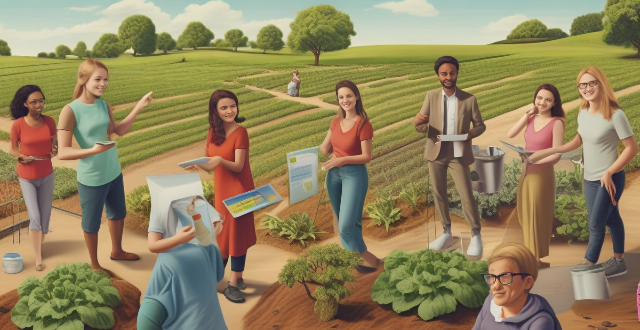Women face unique challenges in adapting to climate change related to their roles as caregivers, farmers, and community members, limited access to resources and decision-making power. Key challenges include limited access to education, financial resources, land and property rights; caregiving responsibilities such as water collection and childcare; limited participation in decision-making processes due to political underrepresentation and cultural norms; and impacts on livelihoods through changes in agriculture, income generation, and migration. Addressing these challenges requires a gender-sensitive approach to climate change adaptation that provides education, improves access to resources, and supports women's roles.

Challenges Faced by Women in Adapting to Climate Change
Women face unique challenges in adapting to climate change, which can have significant impacts on their lives and livelihoods. These challenges are often related to their roles as caregivers, farmers, and community members, as well as their limited access to resources and decision-making power. Here are some of the key challenges faced by women in adapting to climate change:
Limited Access to Resources
- Education and Information: Women often have limited access to education and information about climate change, which can make it difficult for them to understand the risks and take appropriate action.
- Financial Resources: Women may have less access to financial resources, such as credit or savings, which can limit their ability to invest in adaptation measures like improved farming techniques or renewable energy technologies.
- Land and Property Rights: In many communities, women do not have equal rights to land or property, which can limit their ability to make long-term investments in adaptation measures.
Caregiving Responsibilities
- Water Collection: Women are often responsible for collecting water for their families, which can be a time-consuming task that leaves them with less time for other activities, like farming or earning an income.
- Childcare: Women are also often responsible for childcare, which can make it difficult for them to participate in activities related to climate change adaptation, like attending meetings or training sessions.
- Health Impacts: Climate change can exacerbate health issues for women, such as respiratory problems or heat stress, which can further limit their ability to engage in adaptation efforts.
Limited Participation in Decision-Making
- Political Representation: Women are often underrepresented in political positions, which can limit their ability to influence policies related to climate change adaptation.
- Community Leadership: Women may also face barriers to participating in community leadership roles, which can limit their ability to advocate for adaptation measures at the local level.
- Cultural Norms: Cultural norms and expectations can also limit women's participation in decision-making processes related to climate change adaptation. For example, some cultures may view women as less capable of making decisions about technical issues like farming practices or infrastructure development.
Impacts on Livelihoods
- Agriculture: Women are often responsible for farming activities, which can be directly impacted by climate change through changes in temperature, rainfall patterns, and extreme weather events. This can lead to reduced crop yields and food insecurity.
- Income Generation: Women may rely on natural resources for income generation, such as gathering firewood or harvesting wild foods. Climate change can reduce the availability of these resources, leading to decreased incomes and increased vulnerability.
- Migration: Climate change can force people to migrate in search of better living conditions, which can have particular impacts on women who may face additional challenges related to gender-based violence or discrimination in new communities.
Overall, addressing these challenges requires a gender-sensitive approach to climate change adaptation that recognizes the unique needs and experiences of women. This includes providing education and information about climate change, improving access to resources and decision-making power, and supporting women's roles as caregivers and community members. By taking these steps, we can help ensure that women are able to adapt effectively to climate change and contribute fully to building resilient communities.